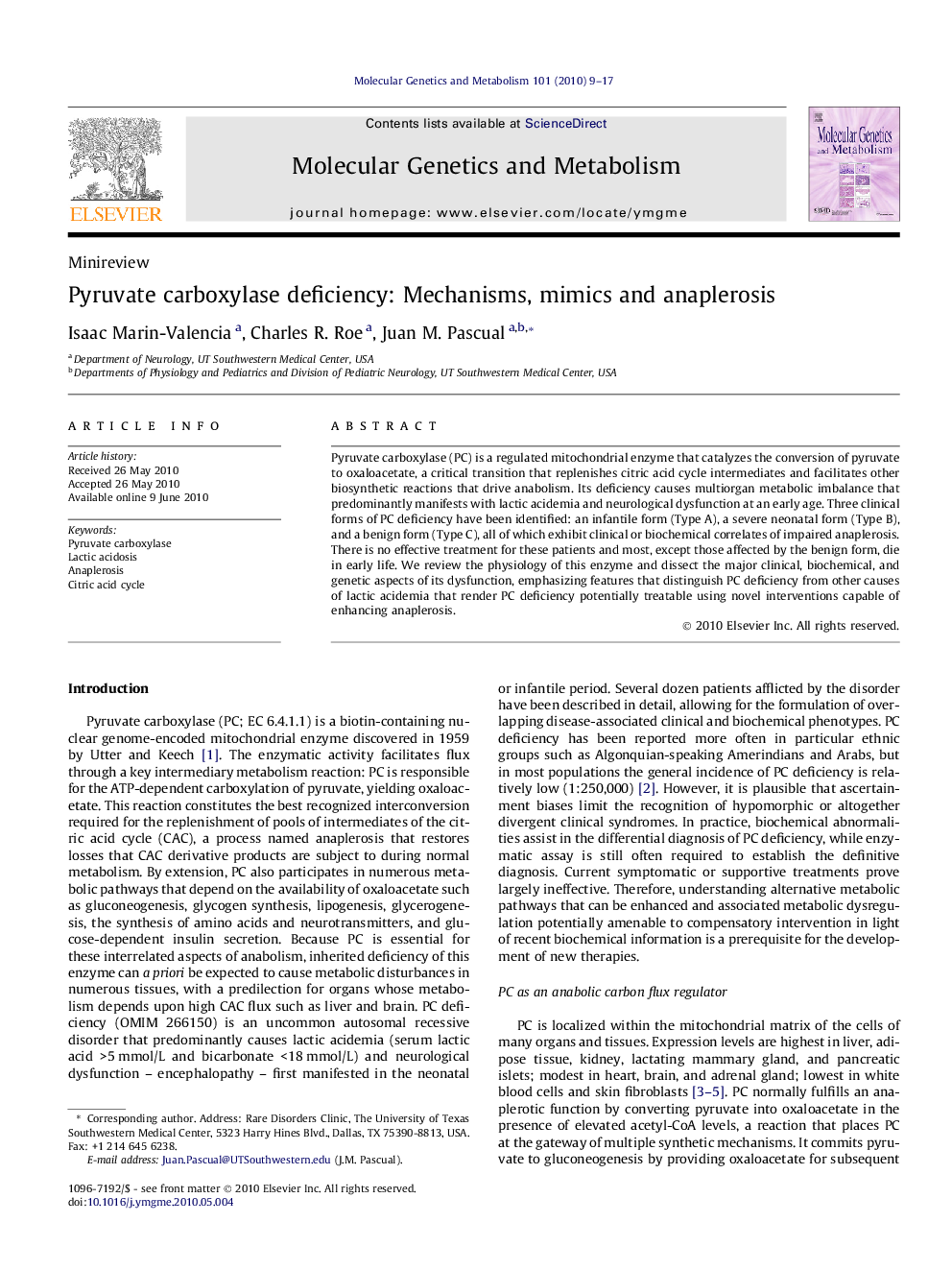| Article ID | Journal | Published Year | Pages | File Type |
|---|---|---|---|---|
| 1998943 | Molecular Genetics and Metabolism | 2010 | 9 Pages |
Pyruvate carboxylase (PC) is a regulated mitochondrial enzyme that catalyzes the conversion of pyruvate to oxaloacetate, a critical transition that replenishes citric acid cycle intermediates and facilitates other biosynthetic reactions that drive anabolism. Its deficiency causes multiorgan metabolic imbalance that predominantly manifests with lactic acidemia and neurological dysfunction at an early age. Three clinical forms of PC deficiency have been identified: an infantile form (Type A), a severe neonatal form (Type B), and a benign form (Type C), all of which exhibit clinical or biochemical correlates of impaired anaplerosis. There is no effective treatment for these patients and most, except those affected by the benign form, die in early life. We review the physiology of this enzyme and dissect the major clinical, biochemical, and genetic aspects of its dysfunction, emphasizing features that distinguish PC deficiency from other causes of lactic acidemia that render PC deficiency potentially treatable using novel interventions capable of enhancing anaplerosis.
